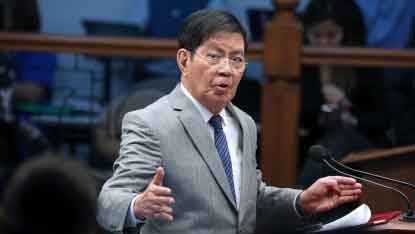Cites easing inflation, need to support growth
The Bangko Sentral ng Pilipinas (BSP) on Thursday reduced the target reverse repurchase rate by 25 basis points to 5 percent, citing the country’s easing inflation and the need to support growth.
BSP Governor Eli Remolona Jr. said the new policy rate is at a “sweet spot,” balancing inflation and output. “The policy rate itself is at our Goldilocks rate—neither too high nor too low,” he said at a press briefing.
The central bank expects inflation to average 1.7 percent in 2025, rising to 3.3 percent in 2026 and 3.4 percent in 2027, all within its 2–4 percent target. It warned, however, that electricity costs and higher rice tariffs could add pressure.
This was the third straight cut this year, with the Monetary Board saying low inflation and firm domestic demand gave it space to recalibrate policy despite global headwinds. Remolona added that the BSP remains dovish but “slightly less so than before” in its forward guidance.
He also signaled the possibility of one more cut before year-end but noted the easing cycle may be nearing its close. “With the data we’re looking at now, yes it would mark the end of the easing. But as you know, the data can change, the sweet spot can move,” he said.
Widely anticipated
RCBC chief economist Michael Ricafort said the reduction, widely anticipated by markets, “could further reduce borrowing and financing costs for listed companies and the overall economy.”
He added that it “would lead to greater demand for loans and credit and in turn drive higher investment,” while narrowing the policy rate gap with the US Federal Reserve to a record-low 50 basis points. He stressed, however, that “the peso exchange rate has remained relatively stable.”
‘A lifeline’
Jonathan Ravelas, senior adviser at Reyes Tacandong & Co., called the cut “a breath of fresh air for ordinary Filipinos,” noting that cheaper loans “put more money in people’s pockets and boost spending.”
He added that for small businesses, “it’s a lifeline… a signal that the BSP wants growth, and it’s giving businesses the fuel to move forward.”
Carlo Asuncion, chief economist at UnionBank of the Philippines, said the decision was consistent with “stable inflation prospects and firm domestic demand,” but warned that global uncertainties, particularly from US trade and investment policies, could temper growth. He said another cut later this year remains possible, though not assured.
Market watchers generally see room for at least one more cut in October.
Citi economists flagged the likelihood of a December easing as well, while Nomura Global Markets Research said benign inflation, more than Fed policy, will drive BSP’s next moves.
Capital Economics added that the economy “could certainly do with more support” as growth slows, making an October cut likely.
Since August 2024, the BSP has reduced its policy rate by a cumulative 150 bps.
On Thursday, it also adjusted the rate on overnight deposits to 4.5 percent and lending facilities to 5.5 percent.
The central bank said it remains ready to respond to emerging risks and ensure that monetary policy continues to support growth and employment.





